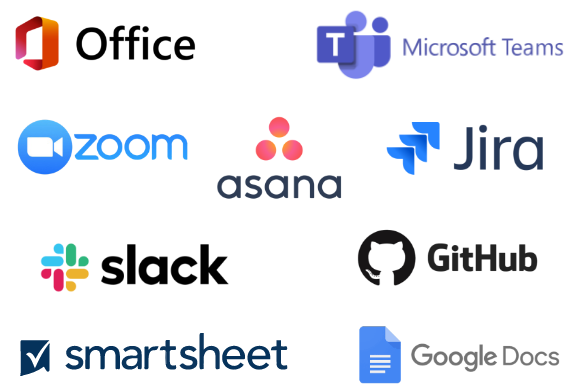Baykanber Insights
Your go-to source for the latest news and trends.
Collaborate or Isolate: The Digital Dilemma
Discover the truth behind the digital age: Should you collaborate for success or isolate for focus? Find your balance now!
The Impact of Digital Collaboration on Modern Work Culture
The advent of digital collaboration tools has significantly transformed modern work culture, leading to increased efficiency and enhanced creativity among team members. With platforms like Slack, Microsoft Teams, and Zoom, communication barriers have been virtually dismantled, allowing for seamless interaction across various geographical locations. This shift not only promotes collaboration but also fosters a sense of community and engagement among remote and in-office employees alike.
Moreover, digital collaboration encourages innovation as diverse perspectives can be easily shared and discussed in real-time. Teams can leverage tools such as shared documents and project management software to streamline workflows and enhance productivity. As businesses continue to embrace this shift, understanding the impact of digital collaboration on employee morale and performance becomes crucial, shaping a more adaptable and resilient work environment.

Isolating in a Digital World: The Psychological Effects of Online Interaction
In the contemporary era, where social media platforms and digital communication dominate our interactions, the phenomenon of isolating in a digital world has become increasingly prevalent. While online interactions offer a convenient means of connecting with others, they often fail to fulfill our fundamental human need for authentic social engagement. Studies have indicated that individuals who rely heavily on digital communication report higher levels of loneliness and depression. Ironically, the very tools designed to foster connection can contribute to a sense of alienation, as people find themselves engaging in superficial conversations rather than forming deep emotional bonds.
Moreover, the impact of online interactions extends beyond individual mental health, affecting societal norms and relationships. For instance, constant exposure to curated online personas can lead to unrealistic expectations about friendships and interpersonal relationships. As a result, individuals may struggle with feelings of inadequacy, as they compare their real-life experiences to those presented online. This cycle can exacerbate the psychological effects of online interaction, leading to increased social withdrawal. To mitigate these effects, it is essential to prioritize genuine in-person connections and engage in digital detoxes from time to time, fostering a healthier balance between our online and offline lives.
Collaboration vs. Isolation: Which Path Leads to Greater Innovation?
In today's fast-paced world, the debate between collaboration and isolation as paths to innovation has gained significant traction. Collaboration fosters a dynamic environment where diverse perspectives and skills converge, often leading to groundbreaking ideas. This synergistic approach not only enhances problem-solving capabilities but also accelerates the innovation process. As teams work together, they can engage in brainstorming sessions, cross-pollinate ideas, and create a rich tapestry of creativity that isolation simply cannot match.
On the other hand, isolation can sometimes lead to profound insights and originality, allowing individuals to delve deeply into their thoughts without external distractions. Innovators like Steve Jobs have often emphasized the value of solitude in fostering creativity. However, relying solely on isolation may result in a narrow viewpoint, limiting the scope of innovation. Ultimately, a balanced approach that incorporates both collaboration and thoughtful solitude is likely to yield the greatest results in driving innovation forward.